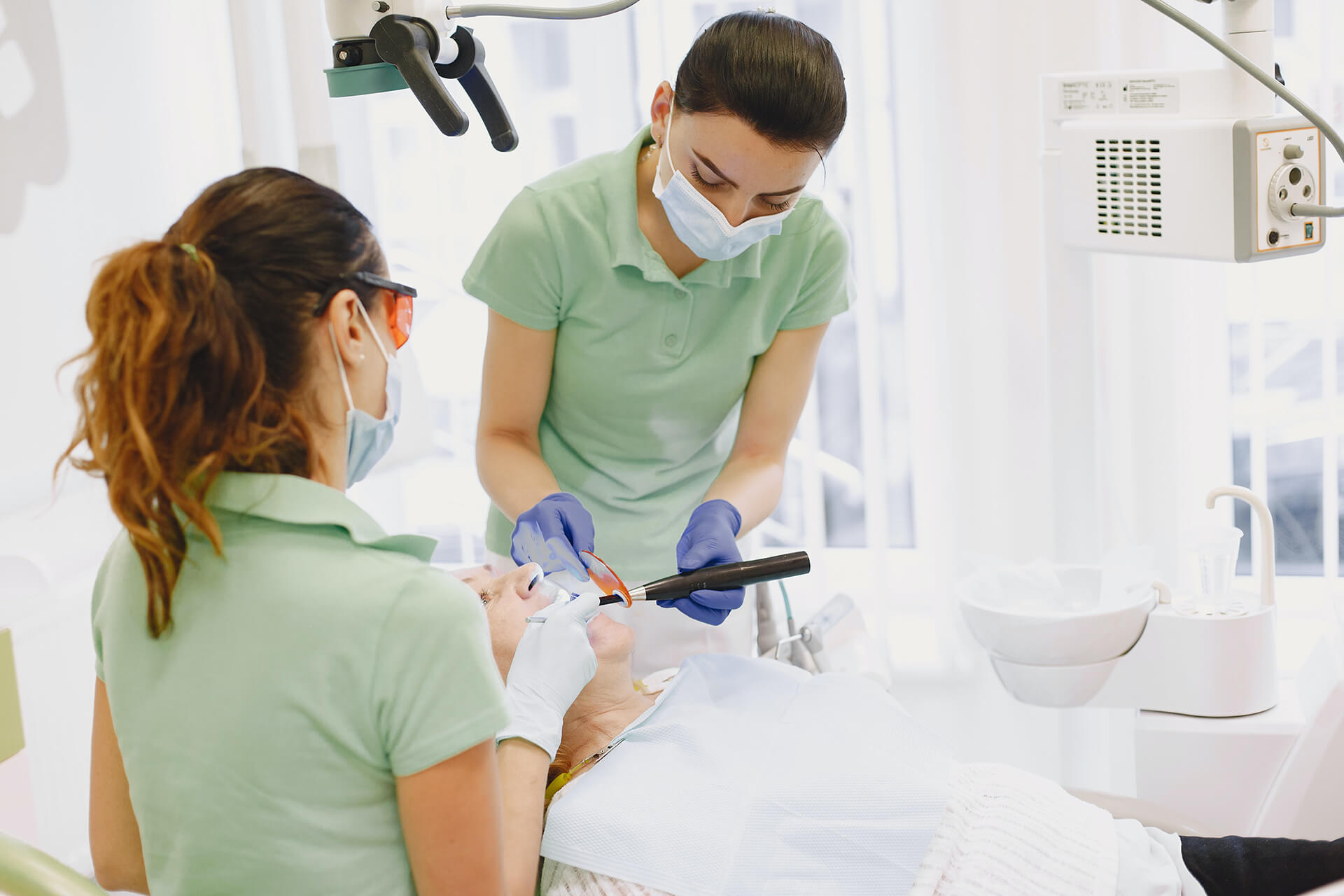Dentists are at an increased risk of hearing loss and tinnitus due to their exposure to loud noises generated by dental equipment.
Table of Contents
Hearing Loss in Dentistry: A Silent Topic
For those who work in noisy workplaces, hearing loss is an occupational hazard that is frequently encountered.
The Occupational Safety and Health Administration (OSHA) has established a standard requiring employers to undertake hearing conservation programs if an employee is exposed to an average noise level of 85 decibels (dB) or higher during an 8-hour workday.
Depending on the type of equipment (drills, high-pitched suction devices, and ultrasonic scalers), and how long it is used, the noise produced by dental equipment ranges from 60 dB to 100 dB, and with the long-term exposure, it is usually responsible for the development of hearing loss or tinnitus – an ear condition that causes ringing or buzzing.
Other Hearing Conditions in Dentists: Hyperacusis
Compared to other healthcare workers who are not as directly exposed to high-intensity noise, the dental professional’s near closeness to the equipment may enhance their chance of getting the Hyperacusis – an elevated sensitivity to sound, with the often occurance of pain or discomfort from noises that other people would not consider loud.
Dental Research
A study published in the International Journal of Audiology indicated that dental professionals had a higher prevalence of tinnitus than the general population, and according to an American Dental Association survey, only 16% of dental workers said they usually wear hearing protection leaving the majority of professionals knowingly or unknowingly prone to hearing loss damage.
Another study that was published in the Journal of Dental Research, proves that the hearing loss was substantially more common among dentists and dental hygienists than among other healthcare professions.
Can Patient Experience Hearing Loss as a Result of Dental Care Treatment?
Seldom do dental patients lose their hearing as a direct result of undergoing treatment; nevertheless, for individuals who already have underlying medical conditions or hearing problems, dental operations can result in hearing loss.
An increased risk of barotrauma during dental treatment exists in patients who already have ear problems, such as a perforated eardrum or middle ear infections. Barotrauma occurs when the ear is harmed as a result of variations in air pressure. It is one probable factor in hearing loss in patients receiving dental care.
Another factor that could lead to hearing loss in dental patients is ototoxicity. It is the word used in medicine to describe damage to the inner ear caused by exposure to particular medications or chemicals.
Although several dental treatment medications, such as antibiotics and local anesthetics, have been related to ototoxicity, the risk of ototoxicity is normally low when these medications are administered as directed and in the appropriate dosages.
How Dentists Can Prevent Tinnitus and Hearing Loss?
There are several strategies that dentists can use to prevent tinnitus and hearing loss.
- Use hearing protection devices: To reduce how loud dental equipment is, dentists should use hearing protection equipment like earplugs or earmuffs.
- Limit exposure to noisy equipment: Dentists should schedule breaks or switch up their shifts to lessen the amount of time they spend using noisy equipment.
- Use low-noise equipment: To reduce the amount of noise made during dental procedures, dentists may think about utilizing low-noise dental equipment.
- Maintain equipment properly: Dental equipment should be regularly maintained and cleaned to assist reduce noise during procedures.
- Education and awareness: Dentists can better grasp the dangers of extended noise exposure and prevent hearing loss by taking the necessary precautions with the aid of education and awareness.
Dentist and Tinnitus: Compensation
Different hearing loss benefits and allowances are available to dental personnel, depending on the country or location in which you work as well as the specific laws and regulations that apply.
In many countries, dental practitioners may be eligible to compensation for hearing loss brought on by their area of work. This could entail remuneration in cash, medical attention, and treatment services.
For instance, American dental practitioners may be eligible for workers’ compensation payments if they have hearing loss. These benefits could compensate for the price of medical treatment, hearing aids, and any lost wages brought on by the incapacity to work.
Also, the Americans with Disabilities Act (ADA) requires employers to provide appropriate workplace modifications or assistive technology to employees who are deaf.
Sources
Contact Us
If you, or anyone you know, worked in noise and suffers from hearing loss, please do not hesitate to contact us.
Contact Us


